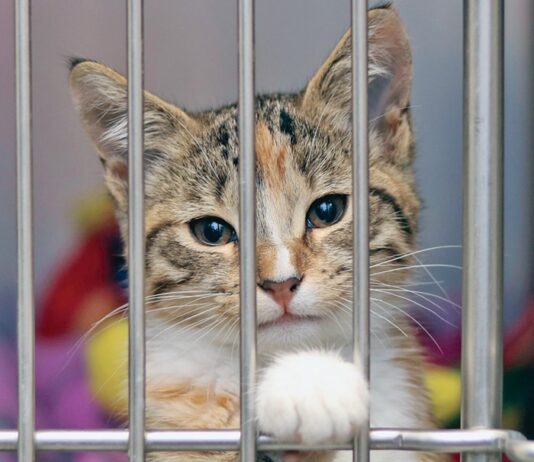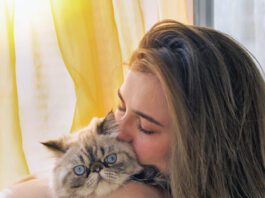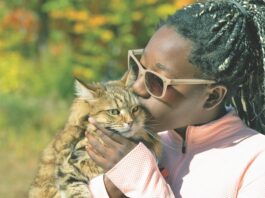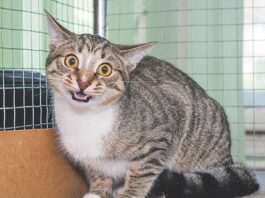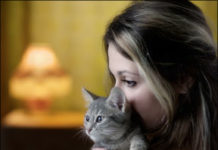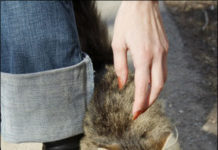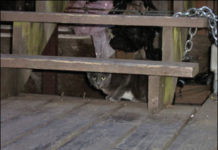Ask Elizabeth: April 2011
I adopted a cat from a local animal shelter three years ago. She is a beautiful brown tabby girl who loves to help when Im working at my desk. The trouble is that she sneezes green goobers all over my paperwork. When I brought her home she had a runny nose and goopy eyes with a lot of sneezing - a classic cat cold according to my veterinarian. A week of antibiotics helped decrease the wet sneezes, but Tabitha has never really recovered from that early cold.
Fostering Kittens: Getting Started
Consider this: One cat and her offspring can produce a whopping 420,000 cats in just seven years. Each year, from April to November, hundreds of thousands of kittens are born - often to feral or stray moms that scavenge out a meager existence on our city streets, in the suburbs, and in rural areas across America. Without human intervention, most of these newborns will die or, at best, lead short, miserable lives. The moms that are not killed by cars, other animals, or disease, will repeatedly become pregnant, adding to the already crushing pet overpopulation problem. Whats a caring animal lover to do?
Ask Elizabeth: February 2011
When I brought her home she had a runny nose and goopy eyes with a lot of sneezing - a classic cat cold according to my veterinarian. A week of antibiotics helped decrease the wet sneezes, but Tabitha has never really recovered from that early cold. Three years have gone by and she still sneezes thick goobers nearly every day. Although she seems happy, is active and eats well, her constant snuffling, congested breathing and spewing green goobers breaks my heart - and also has me frustrated. My veterinarian has done everything she can think of, from antibiotics for weeks on end to medication to help with Tabithas immune system. Everything seems to help … for a while.
Ask Elizabeth: July 2010
We recently adopted a nine-week-old kitten. Shes only a tiny ball of fluff, but already shes using her teeny nails to scratch the brand-new couch that we just bought to replace a couch our recently deceased cat had ruined. I am opposed to declawing cats, but my husband is adamant that we will not be buying any new furniture in the near future. We both love our sweet Fiona, but need some advice. Do you have any tips to help protect our furniture?
Finding a Cat a New Home
Your sister is moving to Japan for her job and she cant take her cat with her. Shes devastated and turns to you for help. But you already have three cats and cant take on another. You cant imagine ever having to give up one of your own cats, but dealing with your sisters situation is almost as bad. What do you do? Someday, you may need to find a home for your own cat. But there are a number of things to try before deciding that a cat cannot stay where she is. And if it becomes absolutely necessary, heres some help in finding her a new home.
Adopting a Neighborhood Stray
Several years ago I came home to my first apartment and was greeted by my best friend, grinning from ear to ear. "Theres a surprise in your bathroom!" she exclaimed. That surprise turned out to be an adorable stray kitty from her hometown. "Nana" soon revealed herself to be an amazingly adaptive cat that was happy just basking in our love and attention, but the road to domestic bliss was certainly not without its bumps. In hindsight, there were several steps we could have taken to make the transition a bit smoother. In fact, there are several potential problems when bringing an outdoor cat (e.g. a neighborhood stray or barn cat) indoors to live; however, if you anticipate these problems - and address them accordingly - they can be greatly minimized.
Short Takes: February 2010
Some involved with animal welfare are critical of free adoptions of adult cats, believing it devalues the cat in the adopters eyes, or it may attract adopters who are unable to fulfill the financial responsibilities of cat ownership. Advocates believe waiving the fee for adult cats will enhance rates of adoptions, and provide opportunities to educate owners who may otherwise adopt from neighbors or may respond to "free to good home" ads.
Short Takes: 09/09
Governor Linda Lingle, accompanied by State Civil Defense Director, Major General Robert Lee, highlighted the importance of emergency preparedness by showcasing Hawaiis ongoing emergency shelter programs for people with special health needs and pet-friendly shelters. State Civil Defense, working with the State Department of Education, county civil defense agencies, American Red Cross, Department of Health, Hawaiian Humane Society and other public and private sector partners, has designated 158 facilities statewide that may serve as Special Health Needs shelters, and another 55 facilities that may be used as Pet-Friendly shelters. These shelters are located in separate rooms or buildings on public school campuses where general population emergency shelters are also located.
So You Want to Adopt Another?
Anyone who rescues strays knows there is no shortage of cats. Wanting to provide a home can become a natural outgrowth of feeding them, and most people who adopt them have the best intentions. "They are caring, compassionate people who want to help them," says Pamela Perry, DVM, a lecturer in farm animal behavior at Cornell Universitys College of Veterinary Medicine. But there is a fine line between adequately caring for multiple cats and obsessively accumulating them. Before deciding to bring in just one more, some important factors need to be considered. Health Status. Free-roaming cats are subject to parasites and transmissible diseases with which an indoor-only cat might never come in contact. "When you take in an animal that you dont know, you usually know little about its background, including any diseases it may be carrying," says Dr. Perry. Before integrating the new cat into the household, the newcomer needs to have a thorough veterinary examination, including testing for infection with feline leukemia virus or feline immunodeficiency virus. "If you already have a cat, you dont want to bring another one into the house until it has tested negative for certain diseases," says Dr. Perry. The newcomer also needs to be vaccinated, given flea treatments if necessary and checked for intestinal parasites and ear mites.
Ask Elizabeth: 05/09
I adopted a munchkin Persian cat from a rescue group a few months ago. Buttercup is cute as a bug, but she has a real problem with her nose- she doesnt have much of one! When I look at Buttercups face I see very small slits where my other cats have nice big nose holes. When Buttercup breaths she makes more noise than any of my other cats; she actually sounds like shes snoring most of the time, even when shes awake! I dont mind the noisy breathing, but Im troubled by what happens when Buttercups activity increases. When she plays - which she doesnt do very often - it looks like she really has to struggle to get air through that tiny nose. After a few minutes of playing chase the feather she stops, sits down, and just heaves. I feel so sorry for her. I put a vaporizer where she sleeps but cant tell that its made any difference. Would antibiotics help? Will she grow out of it? Is there anything I can do for her?
Ask Elizabeth: 04/09
The most effective way to determine whether your friendly, back porch tenant is a neighbors cat is to ask if anyone knows whose cat he might be. Take a photo and make flyers which you can pass out to neighbors and post around the neighborhood. Post signs at local shops, veterinary hospitals, and post offices. Drop off a flyer at your local animal shelter and let them know that you have Lucky. The animal shelter folks will let you know what the laws are regarding found animals. Check the lost and found section of your paper to see if anyone is looking for Lucky and post your own notice there. Make a collar for Lucky from a wide piece of elastic - write a message to his owner "Owner, please call (insert your phone number)" on the elastic and see if you get any responses. Ask a veterinarian or animal shelter to scan him for a microchip, which could identify an owner.
Foreclosures: Cats in Peril
With the numbers of foreclosures rising on a daily basis in some areas of the country, realtors and foreclosed-property inspectors relate that they are making an alarming discovery: Pets have been found locked in the home without food or water, abandoned in the streets or let loose in yards. It is obvious that foreclosures are not just affecting people; they are also affecting the pets of evicted families. With an estimated 34 percent of all home owners owning one or more cats (2007 AVMA US Pet Ownership and Demographics Sourcebook), and more than 1.6 million foreclosures recorded in the month of December 2008 alone, the potential for displaced cats is enormous. Just how many cats are being affected by foreclosures is more elusive than estimating the impact on pet dogs, notes Janet Scarlett DVM, MPH, PhD, professor of Epidemiology and director of Maddie's Shelter Medicine Program at Cornell Universitys College of Veterinary Medicine. A dog that is left behind is usually spotted and found. "A cat that has been put in the yard isnt going to be found by a realtor. For that reason, its much harder to measure the problem accurately," she notes. Recent intake numbers (the number of surrendered, stray or abandoned pets that are taken into a shelter) from areas hardest hit economically support the theory that many pets, including cats, are suffering from the first wave of foreclosures. For example, the Los Angeles Animal Services experienced a 20 percent increase in intake numbers in 2008. One Atlanta, GA shelter reported a 71 percent increase in intake numbers last year; and, a shelter in Fulton County, GA tallied a 250 percent intake increase in 2008 during an eight month period (March through December).

